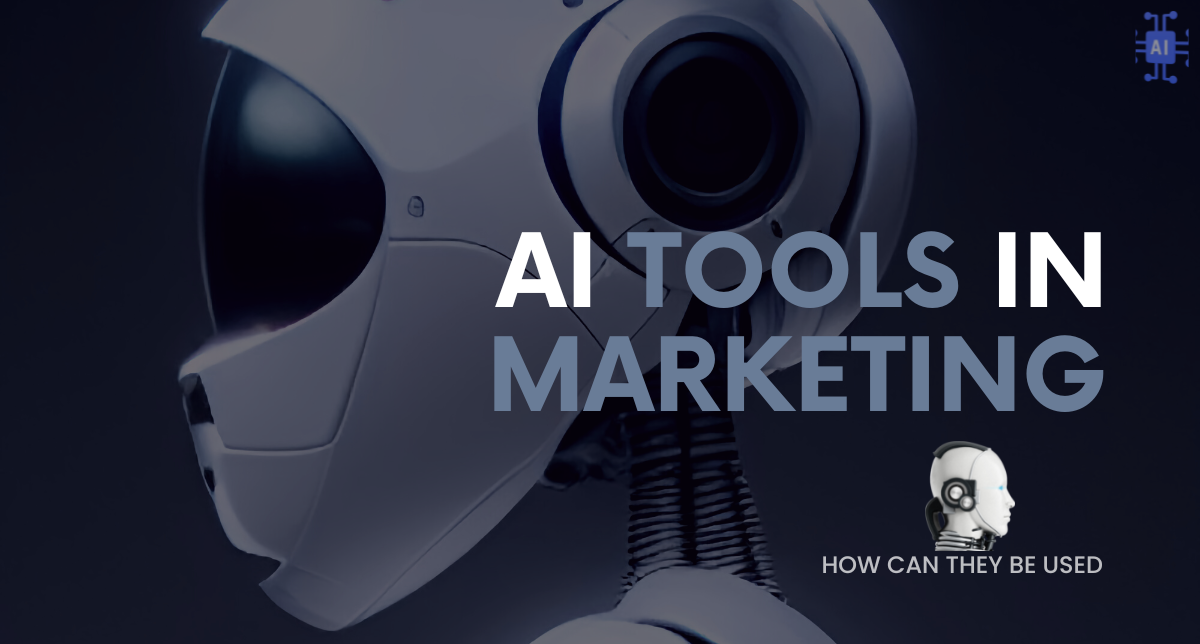Artificial Intelligence (AI) is a fancy way of saying “smart computer stuff.” But AI isn’t just a buzzword for tech geeks – it’s changing the game for marketers too.
The role of AI in marketing is simple: It’s all about leveraging data to create more personalized and effective campaigns. By analyzing massive amounts of customer data, AI tools can help marketers make better decisions, optimize campaigns, and ultimately drive more sales.
The importance of using AI in marketing cannot be overstated. As technology continues to advance, consumers expect more personalized experiences from brands. AI allows marketers to deliver just that. By automating repetitive tasks and analyzing vast amounts of data, AI frees up marketers to focus on the creative and strategic aspects of their campaigns.
AI in marketing has additional benefits. AI can assist marketers in making better decisions and improving overall results in a variety of ways, such as enhancing targeting and segmentation, increasing efficiency and productivity, and improving customer engagement and personalization.
So, if you’re not already using AI in your marketing strategy, you’re missing out! Get ready to take your campaigns to the next level with the power of AI.
Understanding the Basics of AI Tools in Marketing
Now that we’ve covered the importance of using AI in marketing, let’s dive into the basics of AI tools and how they work.
For marketing companies, a variety of AI tools are available, from chatbots and NLP to data modeling and machine learning algorithms. These tools are designed to assist marketers in gathering, analysing, and using data to enhance their campaigns.
But how exactly does AI work in marketing? It all starts with data. AI tools are designed to collect and analyze data on customer behaviour, preferences, and interactions with a brand. This data is then used to create personalized campaigns that speak directly to each individual customer.
What examples of AI tools exist, and how can they be used in various marketing channels? On social media and websites, chatbots are a common tool for enhancing customer service and engagement. On review sites and social media, natural language processing can be used to study consumer comments and sentiment. Marketing professionals can use predictive analytics to make better choices about where to invest their advertising budgets.
The key to using AI tools in marketing is to understand which tools are best suited for each channel and to use data to drive decision-making. By embracing the power of AI, marketers can stay ahead of the curve and deliver more effective campaigns that resonate with their target audience.
Benefits of AI Tools in Marketing
Marketing has come a long way over the years, and with the advent of technology, businesses have been able to take their marketing efforts to new heights. One such technology that has been making waves in the marketing industry is artificial intelligence (AI). AI tools are transforming the way businesses approach marketing by providing advanced data analytics, automation, and personalization. In this article, we will explore the benefits of AI tools in marketing.
Improved Customer Engagement and Personalization
One of the most significant benefits of using AI tools in marketing is the ability to provide personalized experiences for customers. With AI, businesses can analyze customer data to understand their preferences, behaviors, and interests. This allows marketers to create tailored content and experiences that resonate with individual customers. Personalized marketing campaigns are more likely to be successful in engaging customers and driving sales. AI-based Paraphrasing tool also assists you, in that case, to make the content unique for your website and increase customer engagement.
Increased Efficiency and Productivity
AI tools are designed to automate repetitive tasks, which frees up marketers to focus on more strategic initiatives. For example, AI can analyze large volumes of data in real-time, providing insights that would take humans days or even weeks to gather. This increases efficiency and productivity, allowing businesses to make better use of their resources.
Enhanced Targeting and Segmentation
The ability to more appropriately individuals efficiently audiences is another advantage of using AI tools in marketing. Businesses can segment their audiences based on demographics, interests, and behaviour by using AI to analyse customer data and identify patterns and behaviours. This guarantees that marketing campaigns are directed towards the appropriate demographics, increasing engagement and conversion rates.
Improved Lead Generation and Conversion Rates
By using a more focused and individualised approach, AI tools can help businesses in continuing to increase their lead generation and conversion rates. By analyzing customer data, AI can identify the most promising leads and provide personalized content and experiences to encourage conversion. This results in a higher conversion rate, which ultimately leads to increased revenue.
Better Analysis and Decision-making
Businesses now have the ability to analyse massive quantities of data in real-time, gaining useful insight that can guide strategic decision-making. By analyzing customer data, businesses can make more informed decisions about product development, marketing campaigns, and sales strategies. Businesses can tailor their approach to meet customer needs more effectively.
Wrapping Up
Artificial intelligence (AI) tools offer a vast array of possibilities to improve marketing strategies and increase sales. By leveraging AI-powered techniques, businesses can gain deeper insights into customer behavior, preferences, and patterns, leading to more personalized and effective marketing campaigns. Some of the AI-powered tools that can be used in marketing include chatbots, predictive analytics, natural language processing, and machine learning algorithms. However, it’s crucial to note that while AI can streamline and automate certain aspects of marketing, it cannot replace human creativity, empathy, and intuition. Therefore, a successful marketing strategy should combine the power of AI with the expertise and intuition of marketing professionals to achieve the best results.
